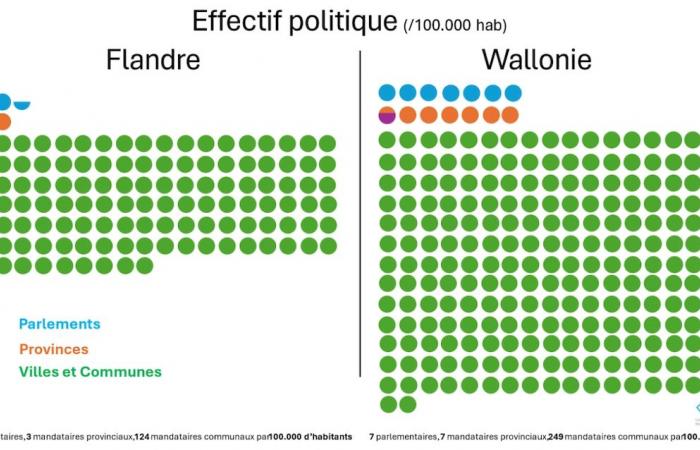Too often, public agents, animated by personal interests or the fear of loss of political majorities, refuse to ally themselves with their neighbors. Although it is important not to neglect identity reluctance, everyone should exceed their a priori. We must meet the challenges of cities in great financial difficulties, such as Liège and Charleroi. They welcome thousands of workers every day who live and pay their taxes in neighboring municipalities. Examples to follow exist, such as Antwerp, or Tournai, which has merged 30 municipalities.
Since these marriages are not on a voluntary basis of local elected officials, let’s go to the next (or intermediary) stage: let the citizens decide to reduce the number of Walloon municipalities (261 municipalities, including 81 in the province of Liège) and Brusselsises (19). Let’s start by organizing a popular consultation in the 202 Walloon municipalities which have less than 15,000 inhabitants. According to the economist Jean Hindriks (Itinera/UClouvain), their mergers would allow the region to save 136 million euros, or 100 to 200 euros per inhabitant/year, and to redirect resources to more effective services.
A merger of the communes of force in Wallonia? The subject that could angry
-To reassure the smallest municipalities, the cities must first guarantee their representativeness and the healthy management of the future entity. It remains to be seen whether the Walloon Minister of Local Powers, François desquenes (the committed), will have the courage to break this taboo, a vestige of the past, to open the way to a necessary and inevitable reform for the future of local finances.
The merger of the municipalities of the Liège metropolis does not appeal to everyone….







